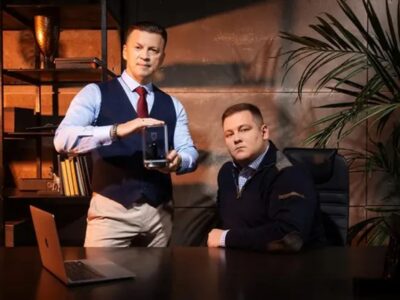Despite the great growth numbers and sales figures of smartphones, we can still see people carrying older Nokia phones, and many of us still hold a lot of affection of our old Nokia handsets.
The famous Finnish company that dominated the global mobile phone market for years has remained a symbol of the country’s rich heritage in technology.
Unable to compete with iPhone and Android, the product of the Finnish engineering supremacy eventually failed, but the country’s two start-up unicorns – Supercell, a Helsinki-based mobile game development company, and Rovio Entertainment, the company behind the famous mobile game Angry Birds – were founded by or with the help of Nokia’s ex-employees.
According to various reports, the Finnish gaming industry is showing strong growth, with a turnover going from $94 million in 2008 to nearly $2 billion in 2014.
However, the diversity of start-ups the country has recently produced signals the revival of Finnish innovation.
The rising start-up scene has greatly benefited from Aalto University, which was created in 2010 by merging three major Finnish universities – the Helsinki University of Technology, the Helsinki School of Economics, and the University of Art and Design Helsinki – to facilitate collaboration between the country’s scientific, business and arts communities.
Among its many student-led initiatives is Startup Sauna, a business accelerator programme, located on Aalto University’s campus in Espoo, a 15-minute drive from downtown Helsinki. It is supported by Aalto University and The Federation of Finnish Technology Industries, Sitra – The Finnish Innovation Fund, and Tekes – the Finnish Funding Agency for Innovation.
In its six-year history, Startup Sauna has received more than 4,100 start-up applications for its five-week accelerator programme, coached more than 1,500 entrepreneurs, and created an alumni association of 187 start-ups that have raised more than $100 million in external financing to date.
“Industry-wise Finns are rather big on both the software and hardware sides,” says Karolina Miller, chief marketing officer at Startup Sauna. “The strength of our consumer electronics companies dates back to Nokia times while the strong gaming industry goes back to Finns dominating the demo scene in the 1980s.
“The main strengths of Finnish entrepreneurs are raw engineering talent and ability to rethink things and services. If a Finnish engineer sees a problem, he is going to be fixed on fixing the problem.
“On the other hand, the end-product reproduced by Finnish engineers might be not the prettiest one. Even though we have great designers here, their co-operation with the engineers could be more efficient. Finnish engineers also lack skills of thinking of the end-user, the business side of their product.”
Priscilla Elora Sharuk and Antoine Vincent Jebara, founders of MYKI, a Beirut-based cyber security start-up that has developed the region’s first advanced password and online identity manager, decided to apply for the Startup Sauna programme in 2014 in an aim to accelerate the growth of their young business, and gain valuable feedback and international credibility at an early stage.
“Startup Sauna does not take equity in exchange for the acceleration, and the best teams from the batch are flown to Silicon Valley to connect with influential investors, potential partners, and media,” says Sharuk. “So, it is almost like a two-part programme allowing you to present your idea in both Europe and the United States.”
MYKI’s solution provides frictionless and secured access to online services through smartphones. Its mobile solution removes the need to manually type in credentials every time a user logs in to a different account online, while also offering a secure password management solution.

Priscilla Elora Sharuk and Antoine Vincent Jebara with the MYKI team members.
During their trip to San Francisco, the MYKI team won the first place at the PitchForce San Francisco competition.
Sharuk explains that during the intensive programme in Helsinki they went through a number of one-on-one coaching sessions with top tier investors and entrepreneurs including the Angry Birds Mighty Eagle Peter Vesterbacka, FIBAN Business Angel 2014 Riku Asikainen, and Europe’s Business Angel of 2015 Moaffak Ahmed, who has remained one of their closest advisors.
“Being a part of the StartUp Sauna Fall 2014 batch in Helsinki allowed me to connect with brilliant Finnish entrepreneurs,” she says. “Their main strengths include the ability to build a product in a thorough and meticulous manner. But since Finns rely on public funding a lot more than we do in the MENA region, many entrepreneurs have burnt through cash to create the minimum viable product and ignored integral customer indicators.”
Sharuk believes that a cooperation between Finnish and Lebanese entrepreneurs would allow both sides to combine their individual strengths. “While MENA-based entrepreneurs may lack the tools to perfect the ‘building’ side of things, especially on the hardware side, due to a lack of available resources, we have a knack for sales rooted in our culture and the salesmanship attitude is at the core of our characters,” she says.
Miller adds: “I have noticed that MENA entrepreneurs have excellent skills in ‘hustling’, which is a key component for a successful start-up, meaning social intelligence, social skills, selling skills, presenting skills. MENA entrepreneurs have confidence in everything they do.”
Miller was part of the StartUp Sauna team that visited Banquet du Liban Accelerate 2015, a disrupt-style tech conference in Beirut, when Emile Arayes and Aline Gemayel, founders of Modeo, a Beirut-based start-up which specialises in modular furniture, decided to apply for the programme in Helsinki.
“During the first session, as soon as we finished re-building our business model canvas, we were surprised by the visit of all the coaches at once,” says Arayes about the first day of StartUp Sauna accelerator programme. “We found ourselves pitching, meeting new people, and exchanging valuable ideas very quickly.
“We ended up very tired with a lot of new thoughts and ideas in mind. It was a very efficient kick-off. That is when we discovered how fast and rich the programme would be.”
Modeo’s mobile app helps users customise, visualise, and order interlocking modular parts of furniture.

Modeo team was selected to join the Startup Sauna Spring 2016 Acceleration Programme.
The start-up was set up in Beirut after the team won the Startup Challenge, organised by Bader Young Entrepreneurs Program in collaboration with the World Bank, during the Lebanon Open Innovation Week. In September 2015, they joined Speed@BDD, a tech start-up accelerator programme in Beirut, receiving a $30,000 seed investment to develop the alpha version of the app and more advanced prototypes as well as to grow the team.
Soon after, the team was selected to join the Startup Sauna Spring 2016 Acceleration Programme as one of the top four from the 20 start-ups that applied from Lebanon.
“We learned a lot from the Finnish people,” says Arayes. “We admire their honesty, their organised way of life, their discipline, their efficiency, their lack of corruption, their friendliness. They are very ethical people that you feel you can trust them blindly. It is very comfortable to work with such people.
“They are straightforward. You can have a 20 minutes meeting with someone that leads to results and actions.”
In 2005 young and ambitious Finns also initiated Slush, an annual tech conference dubbed Europe’s leading start-up event, as a rebellion against a remark of a local professor that the last thing young Finnish students should do was to found a company.
From a 300-person gathering in 2008 Slush has grown into an event attended by 15,000 people from 100 countries.
Another big startup event in Finland is Arctic 15, a two-day tech conference, which this year brought more than 1,500 start-up founders and investors together to talk about Nordic start-up eco-system.
Finland, according to the European Commission’s think thank the Startup Europe Partnership (SEP) that has studied start-up activity in Europe since 2010, has equally powerful neighbours when it comes to breeding innovative tech start-ups.
According to the report, the Nordics – Sweden, Denmark, Finland, Norway and Iceland – have 12 scalers (companies have been able to secure at least $100 million in capital) and 430 scaleups (companies that have raised at least a million dollars), with 149 of them being in Sweden and 126 in Finland.
Sweden is considered the world’s second-largest producer of unicorns, such as its famous Spotify and Skype. Its capital Stockholm — with a population of less than a million people — is home to around 22,000 technology companies that employ 18 percent of the city’s workforce, according to a Google-funded report.
The report further revealed that Sweden witnessed 263 exits at a total value of $23.7 billion, Norway 75 at $10.5 billion, Denmark 58 at $7.4 billion, and Finland 91 at $6.3 billion between 2000 and 2014.
In addition to the government support to local start-ups, early-stage Finnish growth companies receive the most early-stage venture capital investments in the whole of Europe when comparing the value of the investments to the size of the national economy, according to the statistics of the Finnish Venture Capital Association (FVCA).
“The support that Finnish entrepreneurs receive from the public and private sectors is massive,” Sharuk says. “The Aalto ES group which instills entrepreneurship in the university culture early on is a great building block for the country and region as a whole.
“Lebanon is working on cementing entrepreneurship as part of our national education and economic strategy as that would be a highly influential building block for us.”
Arayes concludes by adding: “By having a look at the history of Startup Sauna and at some of the Finnish success stories, and comparing them with the actual Lebanese ecosystem, we can feel what the Lebanese ecosystem can become in the years to come. And that is very promising.”
More than enough reasons for MENA entrepreneurs to engage with the Finnish start-up community.







